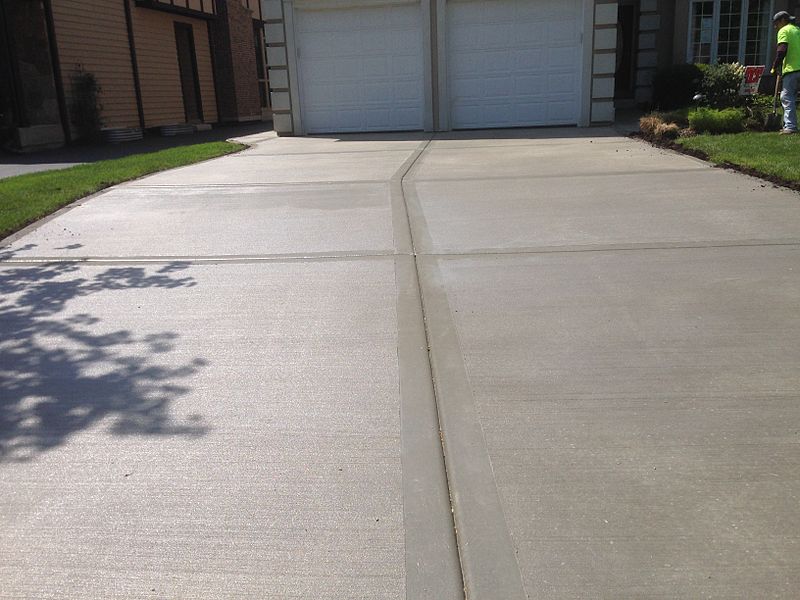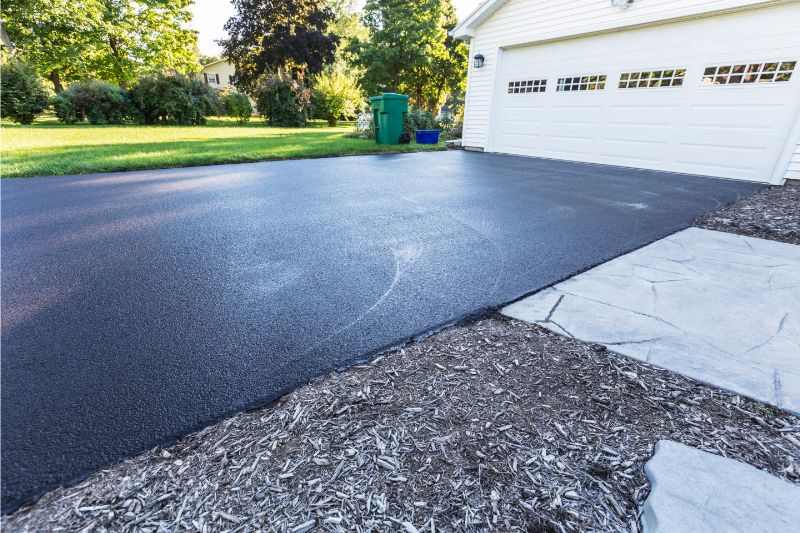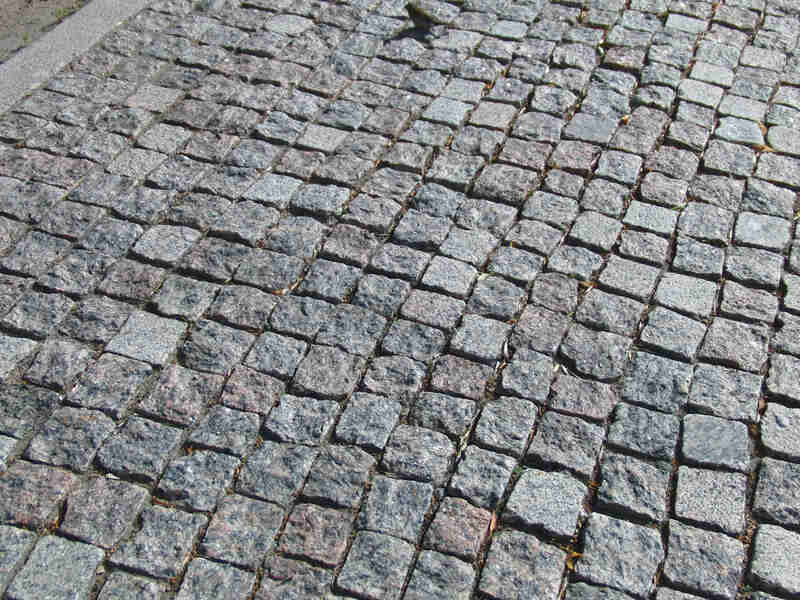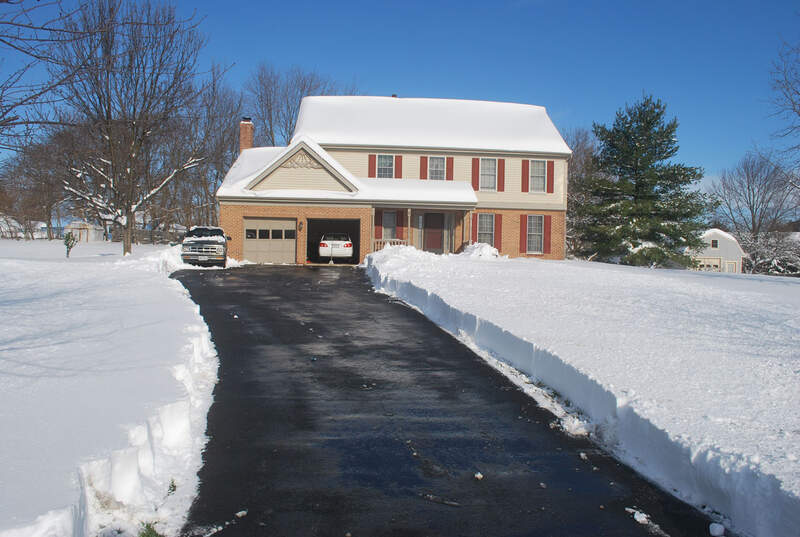
Driveways are low on the priority list when it comes to home maintenance, mostly because they appear to be indestructible. Yet the driveway is one of the most used but overlooked areas of your house and is prone to staining and cracking with time.
Regular driveway maintenance is the key to keeping your home’s exterior sharp and attractive. This guide to maintaining your driveway is designed to let you stay ahead of your driveway’s maintenance and avoid a big repair bill down the road.
Why Do Driveways Need Regular Maintenance?
Driveways are made of strong, long-lasting materials and are generally a low-maintenance part of the house, but they do require some attention. Here are a few reasons you should maintain your driveway:
To Avoid Expensive Repairs or Replacement
An old or neglected driveway develops cracks that grow before you notice something’s wrong. Cracked asphalt, concrete, or loose interlocking pavers allow water to seep and settle into the substructure.
To Enhance Curb Appeal
A poorly maintained driveway is really unattractive and will harm your home’s curb appeal. Remember, it’s one of the first things a visitor notices. Even if the rest of your property is in good shape, a cracked, stained, or worn-out driveway stands out like a sore thumb.
If you’re planning to sell in the future, you might push away potential buyers with a driveway that looks run down or in disrepair.
To Ensure Safety
A damaged driveway is a safety hazard for people and vehicles. You don’t need family members and guests tripping over cracks and potholes and getting injured.
Gaps and potholes on the surface can also damage tires and your vehicle’s suspension.
To Prolong Its Life
Weeds, cracks, oil stains, loose rocks, and moisture all take a toll on your driveway, but regular care and maintenance can extend its life. A good-looking, durable, and clean driveway adds livability, safety, and value to your property.
Different Types of Driveways
Here are four popular driveway materials:
Concrete

Concrete is expensive but is generally pretty easy to maintain. It’s one of the most attractive materials for driveways and sidewalks and has an impressively long lifespan. Although the surface needs less upkeep, it isn’t maintenance-free.
Concrete driveways can develop cracks and crumbles that allow rainwater to seep through. Water can pool in hidden underground spots or erode the soil. Damage is multiplied if your region experiences frequent freezes and thaws.
Asphalt

Asphalt or tarmac is a highly appealing material for driveways, but it requires somewhat more care than concrete to stay attractive. Pooling water, weeds, and potholes are fairly common on asphalt driveways. If not cared for, asphalt driveways can develop small cracks all over, leading to large crumbles.
Gravel

Gravel is your best bet if you’re building a long driveway. It’s inexpensive and easy to work with, but requires regular maintenance. Gravel driveways are susceptible to dips, shifts, and holes, especially after heavy rains. Even better, you can get gravel in various sizes and colors to match the aesthetics of your home.
Paving Stone

Paving stone or driveway pavers are the most expensive type of driveway because they require a good bit of labor during installation. But these driveways are exceptionally practical with their permeability – the stones make a solid surface, while the spaces allow smooth water drainage.
Pavers are popular for green homes because they imitate how water is naturally absorbed in the ground and also reduce storm drain load. But paver driveways, whether they are brick or stone, are vulnerable to cracks, weeds, moss, and ground shifting.
General Maintenance Tips
No matter what material is used to pave your driveway, here are some general driveway maintenance tips that will help you maintain it better:
- Prevent cracks by sealing and resealing the driveway annually or every other year. This prevents water from penetrating the surface, freezing, and cracking. Large trees near the driveway may also have gigantic roots pushing up from underground. Consider removing trees, if possible.
- Reduce water exposure to eliminate chances of penetration on the surface. Create a strip of around two or three inches wide for water and snow to run off, away from the driveway. Also, ensure that your downspouts open into the yard rather than the driveway.
- Fill cracks ASAP. Repair cracks and holes immediately before they expand. Remove all the loose material and clean the debris before filling them in with a patching compound or crack filler. Seal the entire driveway after it dries.
- Park smart because driveways have vulnerable spots. They are not designed for heavy vehicles, especially near the edges, where they are weaker. You are more likely to see chips and cracks if you park your car close to the edges.
- Be gentle when plowing or shoveling the driveway. Sharp and heavy tools will scrape or damage the surface, no matter what kind of driveway surface you have. Use a plastic shovel to remove snow and protect the driveway surface.
- Clean it with a grease-cutting, biodegradable cleaner and warm water to clear older stains. Try to remove fresh stains immediately with water and a little bit of dishwashing detergent. Use non-clumping cat litter to absorb fresh oil spills because if they are left unattended, motor oils can seem into a quarter inch of the concrete surface and soften the asphalt.
- Replace timely. Driveways need replacement when they get old or damaged. When the damage has reached the inner body of the driveway or there have been too many driveway repairs, the bonding along the patches becomes weak and it’s time for a new driveway. LawnStarter has an excellent guide outlining the costs of resurfacing a driveway.
Maintaining Specific Driveway Surfaces

Concrete Driveways
Concrete is tough, but not maintenance-free. Here is how you can keep your concrete driveway looking clean and extend its life:
- Do not let oil or chemicals settle in your driveway. They can leave nasty and stubborn stains. Most home improvement stores sell degreasers that are formulated for removing stains from concrete. Follow the instructions on the package. And be patient. It may take several applications to remove the stain entirely.
- Pressure wash and use a cleaning chemical to restore a discolored concrete driveway.
- Clean the driveway regularly to keep moss at bay. This guide explains how.
- Check for holes, crumbling, or cracks regularly. If you find any, caulk or seal it as soon as possible with a good concrete patching compound.
- Level out all the low spots with a concrete resurfacer.
- Reseal the driveway every two to five years depending on the weather conditions and vehicle traffic it experiences. Sealers protect from stain absorption and water damage. LawnStarter has an excellent guide that outlines the costs of resealing a driveway.
- Avoid using de-icers. They contain harmful chemicals that cause spalling and scaling of the concrete due to forced thawing and refreezing. Instead, use snow blowers or plastic shovels to remove snow and sprinkle cat litter or sand for traction.
Asphalt Driveways
Here is how how you can prevent damage in your asphalt driveway:
- Avoid placing heavy equipment, moving trucks, or dumpsters on your asphalt driveway
- Keep the driveway clean. Use a garden hose to rinse off dirt and debris every week.
- Remove any spills such as motor oil or gasoline immediately. As with concrete, most home improvement stores sell degreasers that are formulated for removing stains from asphalt.
- Seal asphalt driveways every two to five years, or when you notice a problem.
- Keep an eye on your driveway during the summer. Heated asphalt is quite malleable and can develop impressions or tire marks from the heft of a vehicle in the high heat of summer. Consider changing where you park every so often to avoid this issue.
- Watch for breaks, cracks, or bubbles and timely repair the damage.
- Protect the asphalt surface from overheating, since it can lead to cracks and more problems. Set up a sprinkler system to keep the driveway cool or plant trees around for shade.
- Consider applying a sealcoat to protect against harsh sun rays.
Gravel Driveways
A few tips on the proper upkeep of a gravel driveway:
- Make sure that your driveway is graded properly. Gravel driveways should be slightly higher in the center and slope towards the edges to help water run off. The recommended grade is 2% to 5%.
- Check for potholes, water logging, and cracks. Fill in the ruts and potholes with new gravel.
- Add fresh new gravel on the driveway every one to two years.
- Regularly clean the driveway of leaves, sticks, grime, dirt, and other debris buildup.
Paver Driveways
Brick or paved stone driveways add an old-fashioned look to the home’s front. Here’s how most homeowners maintain its charm for many years to come:
- Repair pavers with minor damages with polymeric sand and replace ones that are crushed or severely damaged.
- Pull weeds and reset the sunken pavers if and when you find them.
- Fill any cracks with special sand that will prevent weeds and keep the driveway intact.
- Regularly clean the driveway with a hose to reduce the risk of slipping and staining.
- If there is an oil stain, scrub it off with a wire brush or use a mixture of mild detergent and water. Rinse it off completely after you clean it.
- Seal paver driveways every two to three years.
Frequently Asked Questions About Driveway Maintenance
• Use a pressure washer or garden hose to clear all the debris.
• Mix warm water with an organic detergent and apply it to the concrete surface. Let it sit for 10-15 minutes.
• Scrub the surface with a brush, with special attention to stains.
• Wash off all the cleaning products from the surface once you’re done.
You can apply a layer of sealer any time of the day during the summer months. Ideally, the temperature should be 50 degrees Fahrenheit and rising, with no rain forecast for 24 hours.
It depends on the amount of traffic. Typically, you will just need a single coat of sealant for a low-traffic driveway. Apply two coats if you get moderate traffic and a third coat at the entrance and exit if the traffic is heavy.
Final Word
Driveways contribute a lot to the visual appeal and “first impressions” of your house. A well-maintained driveway saves money and effort and adds lots of value to your property. If you feel like the tips in this guide aren’t something you’d want to DIY, call in a pro to handle it all.
Main Image Credit: Pexels